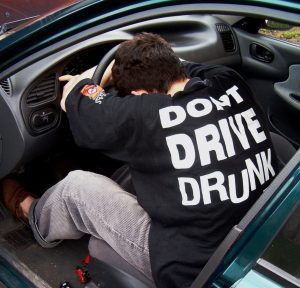 Today, I met with 2 new clients to talk about representing them for their criminal cases at the Rolling Meadows Courthouse. Both cases have different facts, and both clients responded differently when they were confronted by the police. I want to talk about these 2 cases because they illustrate how what clients do when they interact with the police, can often be the difference between winning and losing a criminal case, going to jail, or walking away from criminal charges without a conviction.
Today, I met with 2 new clients to talk about representing them for their criminal cases at the Rolling Meadows Courthouse. Both cases have different facts, and both clients responded differently when they were confronted by the police. I want to talk about these 2 cases because they illustrate how what clients do when they interact with the police, can often be the difference between winning and losing a criminal case, going to jail, or walking away from criminal charges without a conviction.
The first client I met today is charged with a DUI. I represented the client’s wife for a DUI in Rolling Meadows about 3 years ago. When I met with the client’s wife, the current client was with her and heard everything I said to her. I told his wife what she should do if she is ever stopped again for a DUI charge. The client was paying attention to what I told his wife because he followed my suggestions almost perfectly. After the client was stopped by the police officer, the officer asked him if he had been drinking. The client refused to answer the question. The officer asked the client where he was coming from and where he was going, and he refused to answer the officer’s question. When the officer asked the client to exit the car, he complied, but when the officer asked him to perform the Standardized Field Sobriety Tests (SFST) on the side of the road, the client refused. When the officer asked the client to blow into a Portable Breath Device (PBD), the client refused. When the client was asked to submit to a Breathalyzer Test at the police station, he refused. The client told me that he knew he was legally intoxicated so he remembered what I told his wife and followed my advice.
The other client I met today is charged with Unlawful Use of a Weapon by a Felon (UUW by a Felon). This client was a front seat passenger in his friends vehicle. The driver was pulled over for a minor traffic violation. The officer claimed that he smelled burnt cannabis and asked the driver and the passenger to exit the vehicle. The officers found a loaded firearm in the backseat area of the vehicle. When the police asked my client and the driver who the gun belonged to, my client admitted that the gun was his. He told me that he admitted to the gun being his to protect his friend. The problem with the admission is that my client is a convicted felon. Because he has a prior felony conviction, he is being charged with UUW by a Felon which carries a mandatory prison sentence. Probation is not an option for a charge of UUW by a Felon.
 Chicago Criminal Lawyer Blog
Chicago Criminal Lawyer Blog


 Last week I was talking to a client about his case and the circumstances surrounding his arrest. He was explaining what the police did and was convinced that his “rights had been violated”. After he told me that “the police did not read him his rights” after he was arrested, I explained to him that a common misperception is that the police must read you your rights once you are arrested. After I explained this to the client, he asked me what rights he had when he was confronted by the police. This got me thinking about what rights citizens have when they are confronted by the police and how a lack of information about the legal rights that citizens have when the are approached by the police has led to so many criminal defendants making mistakes that should not have to be made. Let me discuss.
Last week I was talking to a client about his case and the circumstances surrounding his arrest. He was explaining what the police did and was convinced that his “rights had been violated”. After he told me that “the police did not read him his rights” after he was arrested, I explained to him that a common misperception is that the police must read you your rights once you are arrested. After I explained this to the client, he asked me what rights he had when he was confronted by the police. This got me thinking about what rights citizens have when they are confronted by the police and how a lack of information about the legal rights that citizens have when the are approached by the police has led to so many criminal defendants making mistakes that should not have to be made. Let me discuss. A few weeks ago, I signed up a new DUI case in Rolling Meadows. The client is only 23 years old and this was his first DUI. The client’s car broke down on the way home from a friend’s house and he had to to pull his car over by the side of the road. After a short time, a police officer approached his car and started asking him questions. The officer asked my client to perform the Standard Field Sobriety Tests on the side of the road and the client declined to do so because he is recovering from ankle surgery and was worried that he would fail the tests. The officer asked the client to blow into a Portable Breath Device to determine whether he was good to drive, and the client complied with the request. The Portable Breath Test indicated that he was slightly over the legal limit. The officer informed my client that he would be taking him to the police station to prepare some paperwork. When my client arrived at the police station, he was asked to take a Breathalyzer Test and refused. The officer told my client that he would be taken to the hospital for a blood draw to determine what his Blood Alcohol Level was. The client has a fear of needles so he refused to go to the hospital. The officer told my client that if he did not take a Blood Test that he would be placed under arrest. Fearing that he would be arrested for refusing to take a Blood Test, my client agreed to go to the hospital and agreed to have his blood drawn. Even though the police did not have the blood results, they arrested him and charged him with a DUI anyway.
A few weeks ago, I signed up a new DUI case in Rolling Meadows. The client is only 23 years old and this was his first DUI. The client’s car broke down on the way home from a friend’s house and he had to to pull his car over by the side of the road. After a short time, a police officer approached his car and started asking him questions. The officer asked my client to perform the Standard Field Sobriety Tests on the side of the road and the client declined to do so because he is recovering from ankle surgery and was worried that he would fail the tests. The officer asked the client to blow into a Portable Breath Device to determine whether he was good to drive, and the client complied with the request. The Portable Breath Test indicated that he was slightly over the legal limit. The officer informed my client that he would be taking him to the police station to prepare some paperwork. When my client arrived at the police station, he was asked to take a Breathalyzer Test and refused. The officer told my client that he would be taken to the hospital for a blood draw to determine what his Blood Alcohol Level was. The client has a fear of needles so he refused to go to the hospital. The officer told my client that if he did not take a Blood Test that he would be placed under arrest. Fearing that he would be arrested for refusing to take a Blood Test, my client agreed to go to the hospital and agreed to have his blood drawn. Even though the police did not have the blood results, they arrested him and charged him with a DUI anyway. The best evidence that the police and the prosecutors have to prove a DUI in Court is a Breathalyzer Test. While it is not necessary for the State to have a breathalyzer test to prove you guilty of a DUI in Court, it is the best evidence that the state can have in a DUI case. I frequently talk to clients who do not understand what a Breathalyzer Test is and how easy it is to get a result that could make it very difficult to fight a DUI case. I want to discuss some facts about the Breathalyzer Test and eliminate some common misunderstandings.
The best evidence that the police and the prosecutors have to prove a DUI in Court is a Breathalyzer Test. While it is not necessary for the State to have a breathalyzer test to prove you guilty of a DUI in Court, it is the best evidence that the state can have in a DUI case. I frequently talk to clients who do not understand what a Breathalyzer Test is and how easy it is to get a result that could make it very difficult to fight a DUI case. I want to discuss some facts about the Breathalyzer Test and eliminate some common misunderstandings. I frequently speak to clients who have been arrested for a DUI. After the initial shock of being arrested wears off, most DUI clients start to think about the future and the possible implications of having a DUI. As with most things, most people do not think about what could happen to them if they picked up a DUI until it actually happens to them. When I receive those calls, most clients are initially worried about whether they will be going to jail. After I explain to them that jail is usually not an option for a first time DUI, the next question is whether they will lose their license as a result of the DUI. I want to take an opportunity to talk about how a DUI can affect your drivers license.
I frequently speak to clients who have been arrested for a DUI. After the initial shock of being arrested wears off, most DUI clients start to think about the future and the possible implications of having a DUI. As with most things, most people do not think about what could happen to them if they picked up a DUI until it actually happens to them. When I receive those calls, most clients are initially worried about whether they will be going to jail. After I explain to them that jail is usually not an option for a first time DUI, the next question is whether they will lose their license as a result of the DUI. I want to take an opportunity to talk about how a DUI can affect your drivers license. After 28 years of practicing criminal law, it is very rare to hear a client tell me something about a criminal case that I never heard before. Throughout the years, I have handled thousands of DUI cases. While every case is unique, there are certain common elements to certain criminal cases. This is especially true with most DUI cases. While it is common for me to speak with clients who were arrested for a DUI, for the clients I am speaking to, this is a unique and scary experience for them. Part of my job as a criminal defense lawyer is to listen to the client and guide them through the process so they understand what is happening and how the criminal justice system works. In this post, I want to explain to my readers what a typical DUI arrest looks like.
After 28 years of practicing criminal law, it is very rare to hear a client tell me something about a criminal case that I never heard before. Throughout the years, I have handled thousands of DUI cases. While every case is unique, there are certain common elements to certain criminal cases. This is especially true with most DUI cases. While it is common for me to speak with clients who were arrested for a DUI, for the clients I am speaking to, this is a unique and scary experience for them. Part of my job as a criminal defense lawyer is to listen to the client and guide them through the process so they understand what is happening and how the criminal justice system works. In this post, I want to explain to my readers what a typical DUI arrest looks like. As one of the busiest and most experienced DUI attorney in Illinois, this may be one of the most common question I get whenever I speak to a client about their DUI case. The short answer to this question is no. But you should understand the consequences of refusing to submit to a breathalyzer, or chemical test, when you are placed under arrest for a DUI. Illinois is an implied consent state. This means that you give consent to a chemical test to determine the blood alcohol contact in your blood by merely driving a motor vehicle on a public highway or roadway in Illinois. So let’s discuss what happens if you are pulled over by a police officer and the police officer asks you to take a breathalyzer test, or provide a blood sample, to determine what the blood alcohol content (BAC) of your blood is and you refuse the request.
As one of the busiest and most experienced DUI attorney in Illinois, this may be one of the most common question I get whenever I speak to a client about their DUI case. The short answer to this question is no. But you should understand the consequences of refusing to submit to a breathalyzer, or chemical test, when you are placed under arrest for a DUI. Illinois is an implied consent state. This means that you give consent to a chemical test to determine the blood alcohol contact in your blood by merely driving a motor vehicle on a public highway or roadway in Illinois. So let’s discuss what happens if you are pulled over by a police officer and the police officer asks you to take a breathalyzer test, or provide a blood sample, to determine what the blood alcohol content (BAC) of your blood is and you refuse the request. Kane County Prosecutors and law enforcement officials have announced that Kane County will be conducting their 25th “No Refusal” DUI patrol over the St. Patrick’s Day Holiday.
Kane County Prosecutors and law enforcement officials have announced that Kane County will be conducting their 25th “No Refusal” DUI patrol over the St. Patrick’s Day Holiday. I’ve been handling DUI cases throughout Illinois for over 27 years. I have probably handled thousands of DUIs in my 27 years of being a criminal defense attorney. Looking back at all of the years and all of the cases that I have handled, I can tell you that most people charged with a DUI do not realize that they are probably looking at a mandatory suspension of their license in Illinois. For many people, this mandatory suspension of their license will have the greatest impact on their lives. It will affect their ability to get to and from work, and may even cause them to lose their job. This mandatory suspension, is called the Statutory Summary Suspension. Let’s talk about what the Statutory Summary Suspension is, at what it means for your DUI case.
I’ve been handling DUI cases throughout Illinois for over 27 years. I have probably handled thousands of DUIs in my 27 years of being a criminal defense attorney. Looking back at all of the years and all of the cases that I have handled, I can tell you that most people charged with a DUI do not realize that they are probably looking at a mandatory suspension of their license in Illinois. For many people, this mandatory suspension of their license will have the greatest impact on their lives. It will affect their ability to get to and from work, and may even cause them to lose their job. This mandatory suspension, is called the Statutory Summary Suspension. Let’s talk about what the Statutory Summary Suspension is, at what it means for your DUI case. I frequently receive phone calls from clients who are facing their second DUI. Many times, they do not understand how serious their case is and what they are facing. If you have been arrested and are charged with a DUI, and it’s your second DUI, you need to understand how serious this case could be and what the long-term implications to you could be. Not only could it cost you lots of money, but you could be labeled a convicted criminal for the rest of your life, end up in jail, sentenced to Probation, and lose your license for a very long time. Let me explain to you what makes a second DUI so serious.
I frequently receive phone calls from clients who are facing their second DUI. Many times, they do not understand how serious their case is and what they are facing. If you have been arrested and are charged with a DUI, and it’s your second DUI, you need to understand how serious this case could be and what the long-term implications to you could be. Not only could it cost you lots of money, but you could be labeled a convicted criminal for the rest of your life, end up in jail, sentenced to Probation, and lose your license for a very long time. Let me explain to you what makes a second DUI so serious.